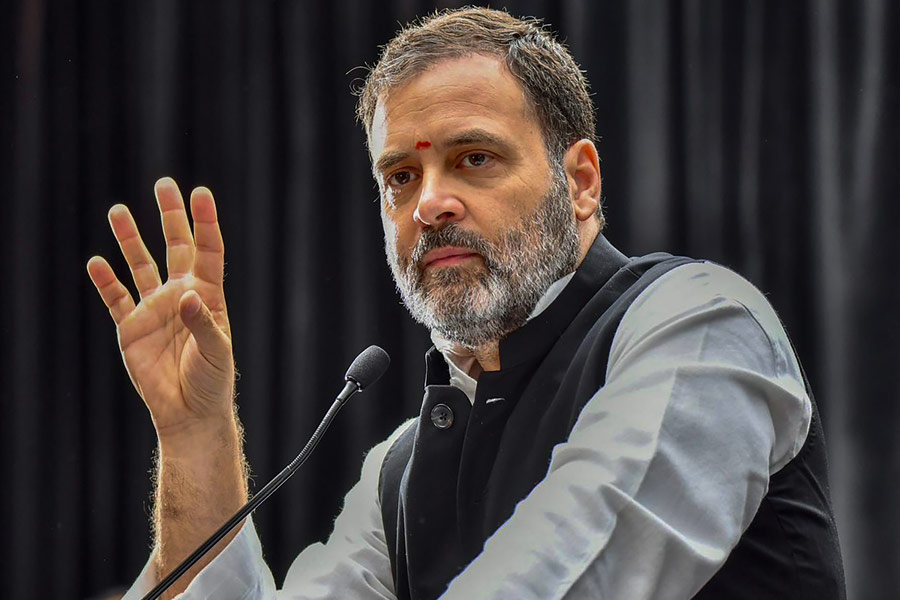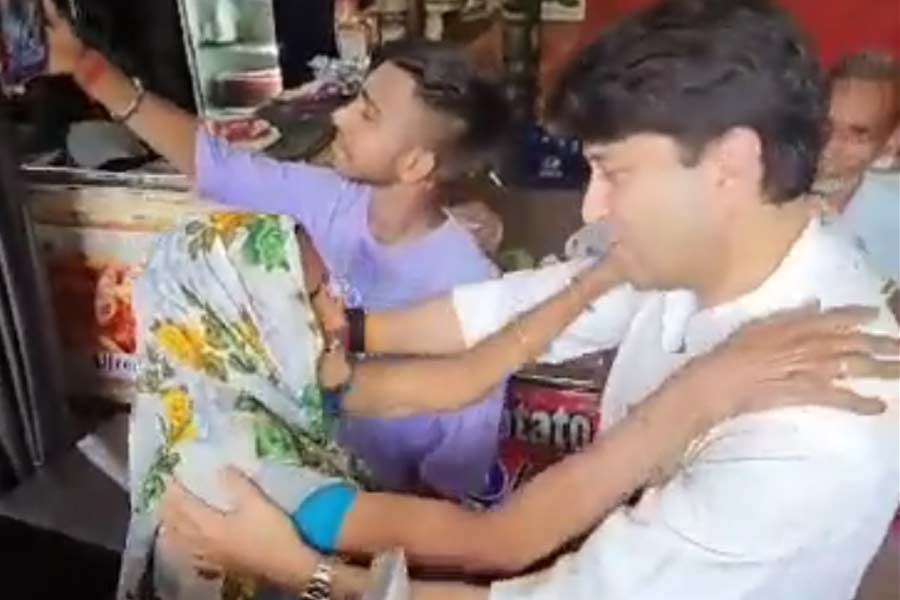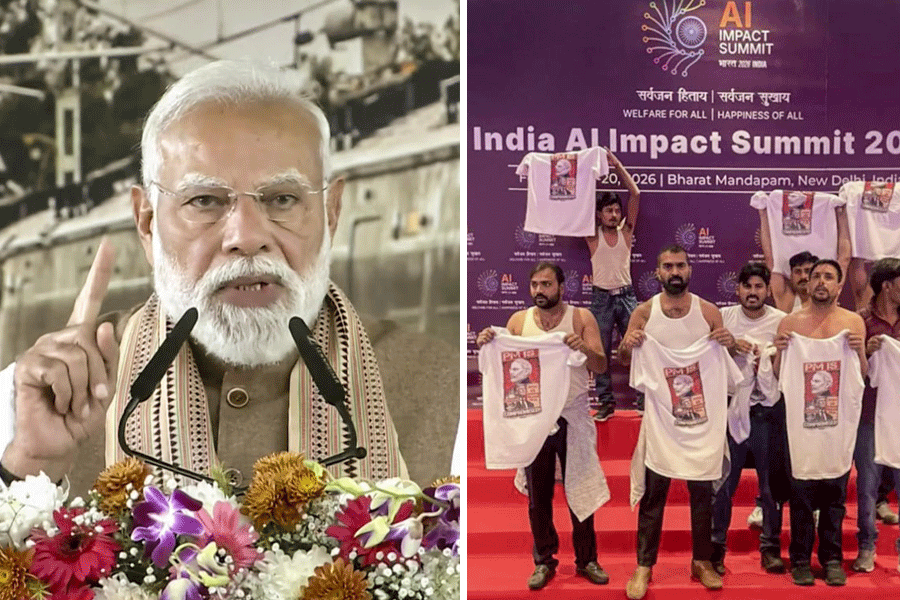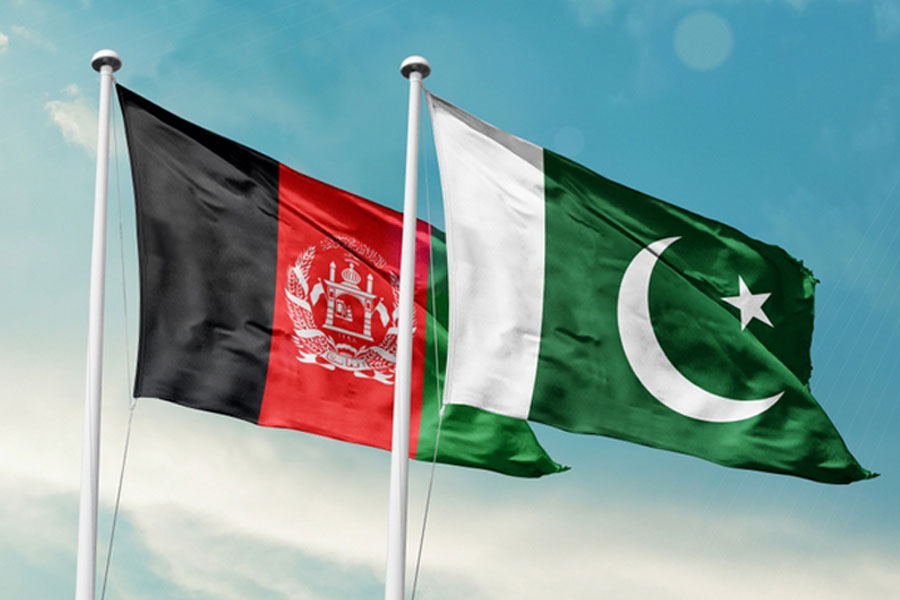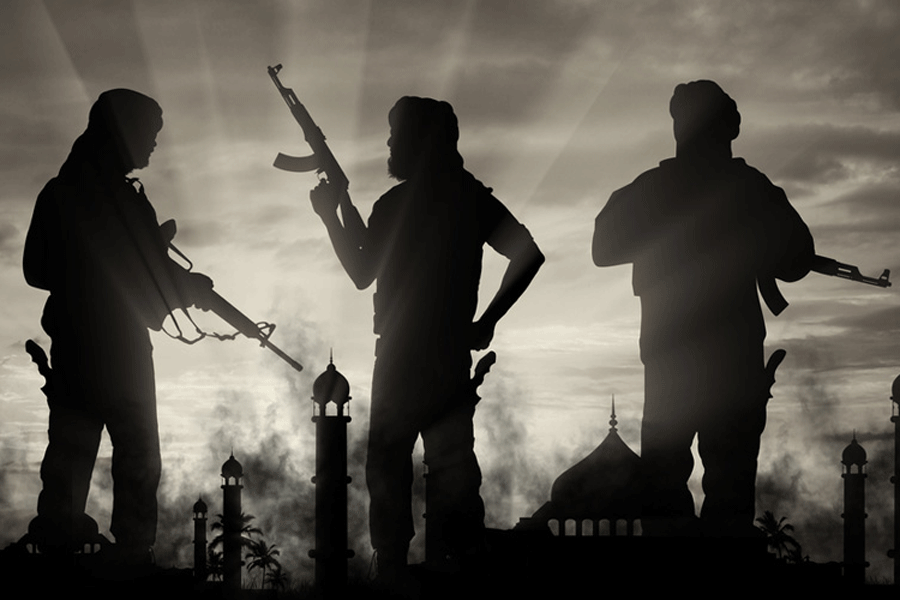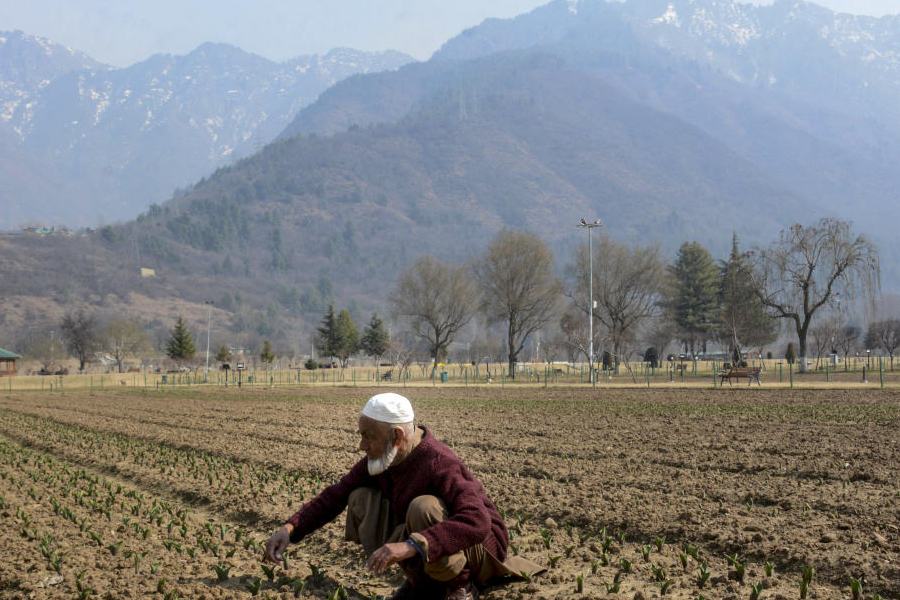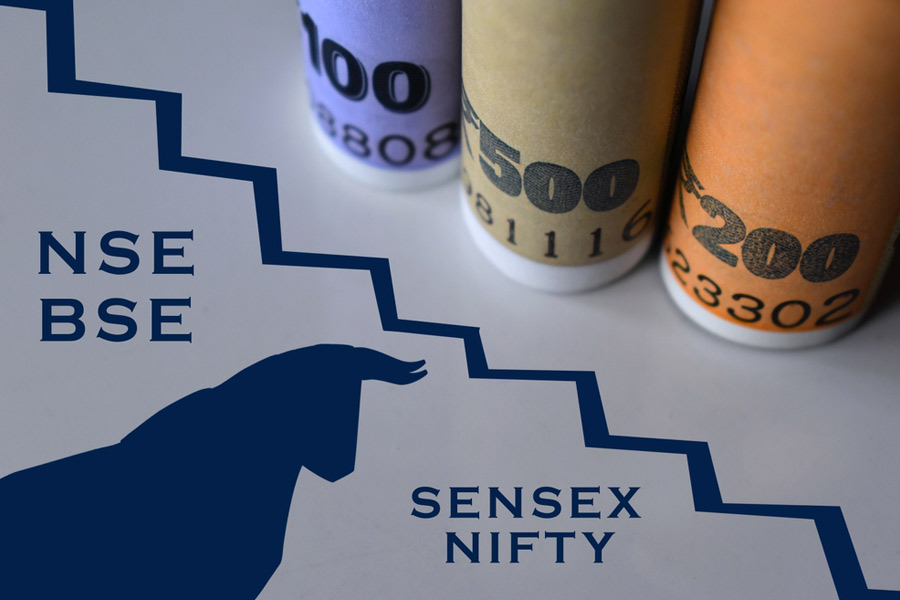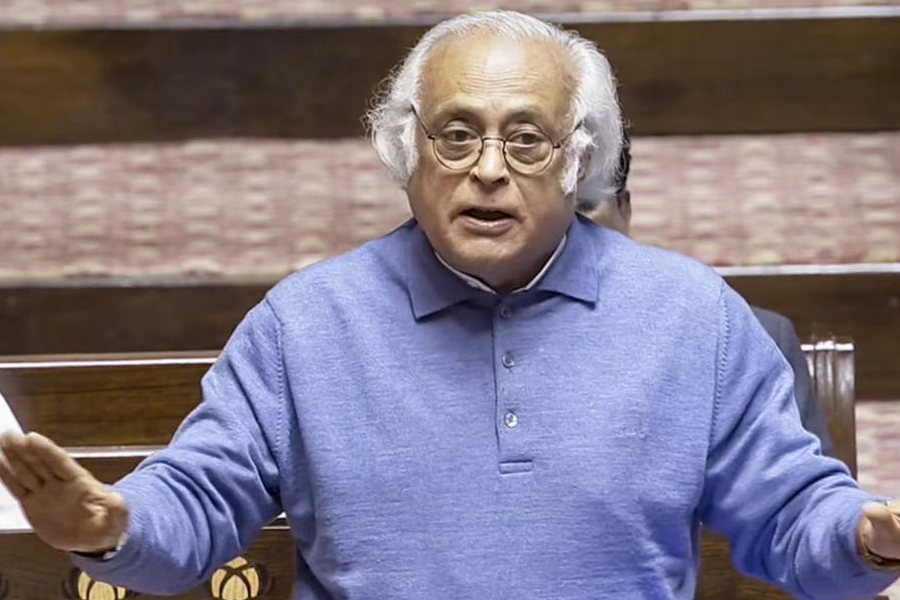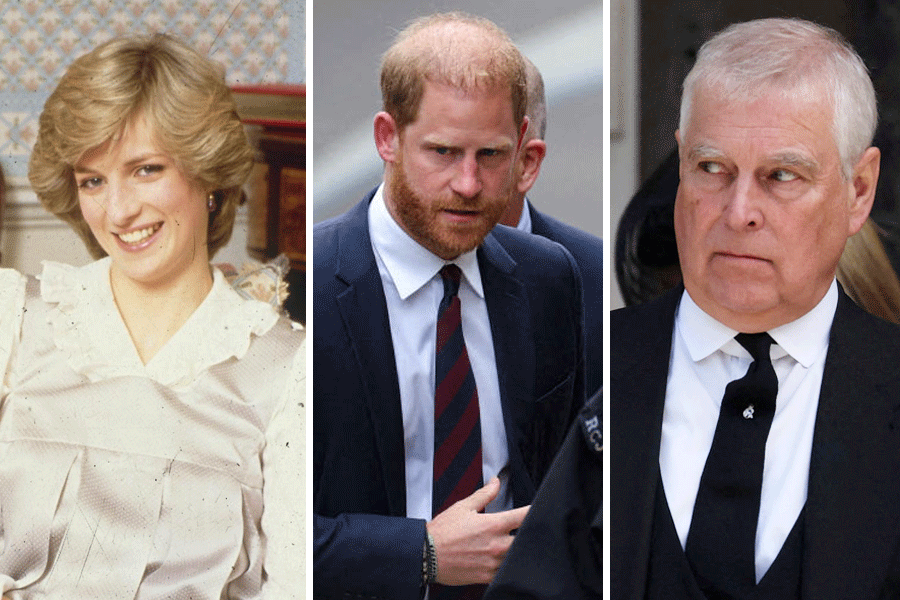Gujarat High Court on Friday rejected Rahul Gandhi’s plea for a stay on his conviction in a criminal defamation case over his “Modi surname” remark, citing other pending cases against him and declaring the trial court verdict in the present case “just, proper and legal”.
The Congress said it would approach the Supreme Court against the verdict by the single-judge bench of Justice Hemant Prachchhak.
A stay on the conviction would have paved the way for his return as MP. However, if the sentence is carried out, Rahul will be ineligible to contest elections for six years after serving out his term.
The Congress also flagged the judge’s reference to the “as many as 10 criminal cases… pending against the applicant”, asking what connection the defamation suit had with these cases –- mostly filed by BJP supporters over Rahul’s criticism of the RSS, V.D. Savarkar and Prime Minister Narendra Modi.
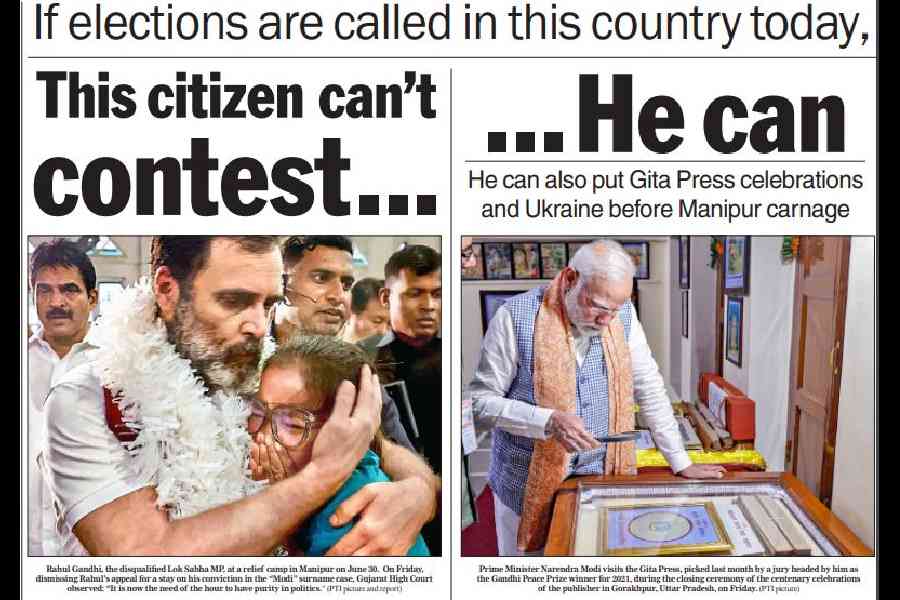
Justice Prachchhak said Rahul was seeking a stay on his conviction on “absolutely non-existent grounds”. He said the districtcourt where Rahul’s appeal against his conviction was pending should decide the matter “on its own merits” and “as expeditiously as possible”.
“…As many as 10 criminal cases are pending against the applicant. It is now the need of the hour to have purity in politics. Representatives of people should be men of clear antecedent,” the judge said.
Rahul’s lawyer Abhishek Singhvi described the judgment as “highly disappointing but not unexpected”.
He said that none of the substantive objections raised by Rahul’s legal team had been answered and that extraneous reasons such as the pending cases against Rahul had been cited to defend his conviction.
“This jurisprudence that the courts in question are evolving is, for want of a better word, unique. It has no precedent or parallel with any other judgments ever passed on the subject of defamation laws,” Singhvi said.
“We have explained the law of defamation and how it allows only a person who is defamed --- not an amorphous, undefinable community --- to file a case. The question which none of these benches seem to be answering is: ‘How are the complainants personally defamed?’ This is the first condition precedent of the law of defamation. Second, malice, which is an essential ingredient, is absent.”
Rahul was quoted as asking, while addressing an election rally in Karnataka in April 2019, “How come all thieves have Modi as the common surname?” Gujarat MLA Purnesh Modi of the BJP filed the criminal defamation case against him.
Singhvi said: “Where have these benches found the malice which has escaped everyone other than BJP members/ complainants? Third, what is the damage or loss suffered by these individuals? Basic questions. All left unanswered.
“Is there a single (other defamation) case where a conviction has occurred in identical or similar circumstances? Neither of the courts has relied on any such judgments.
The complainants
Singhvi added: “It surprises me that while in almost every judgment in this matter so far, attention is drawn by the bench to other cases (pending against) Rahul Gandhi. In this case, no one notes that the complainants in all those cases, just like this one, are BJP leaders, workers or supporters. There is literally no fourth category.
“At no point are the bona fides or motives of that source ever examined, forget being addressed. Forget the frivolous and obviously orchestrated nature of these complaints. There is a crystal clear conspiracy and pattern of suppression all being executed in plain sight by the BJP and its affiliates. They want to throttle the Opposition and anyone who dares to criticise this hollow and petrified government.”
Singhvi cited the high court judge’s reference to a defamation complaint that Savarkar’s grandson had filed in a Pune court over a comment made by Rahul in Cambridge about the Hindutva ideologue.
“How is this relevant in the slightest? At the end of arguments, a newspaper cutting was handed over by the complainant’s counsel of a case filed on April 12, 2023, post the conviction (of Rahul) by the trial court on March 23, 2023. This was neither pleaded, nor otherwise argued. Yet this becomes a major basis of the judgment,” he said.
‘Freedom test’
Singhvi suggested that the outcome of the legal battle would affect everybody and not just Rahul.
“This is an important legal battle regardless of the personalities involved. It is about freedom of speech. The government wants to dictate what can and cannot be said,” he said.
“Tomorrow, a story by a journalist will be called defamatory because one individual claims, without the slightest bit of proof, that an entire amorphous community has been offended. The defamation law, on paper and in practice outside the state of Gujarat, was written to prevent exactly such abuses. And now, it is being undone in full public view, in the state of Gujarat.”
Rahul was disqualified as MP after a metropolitan magistrate’s court in Surat convicted him and sentenced him on March 23 to two years in jail – the maximum punishment for defamation and the minimum required for a lawmaker’s disqualification.
A district and sessions court granted Rahul bail on April 20 but refused to stay the conviction, following which he approached the high court.
‘Vendetta’
“People see what is happening, how an entire cottage industry has been unleashed against one individual, how it is being done because Rahul is the only leader from the Opposition who they cannot break,” Singhvi said.
“The more they have attempted to silence him; though harassment by the ED and CBI, the breach of privilege notices, the petty removal of SPG security to the disqualification from Parliament, he remains unmoved. And that is what exposes their fear.
“This act of obvious vendetta signifies the systematic, repetitive, emasculation of democratic institutions by the ruling party. It signifies the strangulation of democracy itself. The message is that you will be visited with the worst possible consequences, including incarceration, be it intimidation and be it harassment in every sphere of life.”

